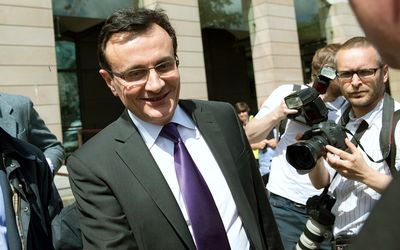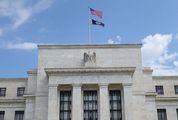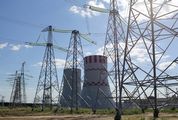AstraZeneca case shows CEO pay should be linked to performance
by Chris Hughes,
2016-03-15 05:58:34.0
LONDON — Enduring muttering over Pascal Soriot’s pay at AstraZeneca is a warning to other CEOs that they will be held accountable for pledges made during a bid defence.
In May 2014, AstraZeneca said it would deliver $45bn of revenue in 2023. At the time, the British drug maker was attempting to see off an unsolicited takeover approach from US rival Pfizer.
Just after the revenue claim was made, AstraZeneca rejected a £55-a-share bid that failed, as it was conditional on the UK firm’s recommendation.
Some shareholders have been asking — rightly — why nothing in Mr Soriot’s pay is linked directly to hitting that 2023 target.
The idea has "some attraction", AstraZeneca says, and it is considering ways for a "more transparent link" to be made between the controversial target and executive pay.
It needs to get on with it.
AstraZeneca’s rejection was based on the view that £58.85 per share was the level at which to yield to Pfizer.
The $45bn revenue projection was undoubtedly central to this valuation. The difficulty is that such forecasts are hard for outsiders to assess, let alone police. Projections about cost savings in a merger are subject to rules set by the UK Takeover Panel, to ensure they are credible. But auditing a nine-year sales target is near impossible.
Baking such targets into CEO pay is probably the best of bad solutions to achieve some accountability.
Still, it would be odd to skew the bonus of any CEO directly to a 2023 revenue target. This could distort decision-making against the near-term needs of the business.
AstraZeneca stock tumbled on the day of the bid rejection, and has fallen 5% since, to about £40.60. Bloomberg’s Europe 500 Pharmaceuticals index has risen 7% in the same period.
Last year, Mr Soriot was paid £8.4m, up from 2014’s £3.5m, thanks to £4.7m of long-term incentives vesting. It looks as if shareholders have suffered all the pain, while Mr Soriot has done moderately well.
Mr Soriot may not be running AstraZeneca in 2023, and it probably will not be possible to devise a perfect way to hold him to account. But that is no reason not to link part of his pay to what he promised.

Pascal Soriot. Picture: REUTERS/NEIL HALL
LONDON — Enduring muttering over Pascal Soriot’s pay at AstraZeneca is a warning to other CEOs that they will be held accountable for pledges made during a bid defence.
In May 2014, AstraZeneca said it would deliver $45bn of revenue in 2023. At the time, the British drug maker was attempting to see off an unsolicited takeover approach from US rival Pfizer.
Just after the revenue claim was made, AstraZeneca rejected a £55-a-share bid that failed, as it was conditional on the UK firm’s recommendation.
Some shareholders have been asking — rightly — why nothing in Mr Soriot’s pay is linked directly to hitting that 2023 target.
The idea has "some attraction", AstraZeneca says, and it is considering ways for a "more transparent link" to be made between the controversial target and executive pay.
It needs to get on with it.
AstraZeneca’s rejection was based on the view that £58.85 per share was the level at which to yield to Pfizer.
The $45bn revenue projection was undoubtedly central to this valuation. The difficulty is that such forecasts are hard for outsiders to assess, let alone police. Projections about cost savings in a merger are subject to rules set by the UK Takeover Panel, to ensure they are credible. But auditing a nine-year sales target is near impossible.
Baking such targets into CEO pay is probably the best of bad solutions to achieve some accountability.
Still, it would be odd to skew the bonus of any CEO directly to a 2023 revenue target. This could distort decision-making against the near-term needs of the business.
AstraZeneca stock tumbled on the day of the bid rejection, and has fallen 5% since, to about £40.60. Bloomberg’s Europe 500 Pharmaceuticals index has risen 7% in the same period.
Last year, Mr Soriot was paid £8.4m, up from 2014’s £3.5m, thanks to £4.7m of long-term incentives vesting. It looks as if shareholders have suffered all the pain, while Mr Soriot has done moderately well.
Mr Soriot may not be running AstraZeneca in 2023, and it probably will not be possible to devise a perfect way to hold him to account. But that is no reason not to link part of his pay to what he promised.





















Change: 0.83%
Change: 0.93%
Change: 0.95%
Change: 0.73%
Change: 1.91%
Data supplied by Profile Data
Change: 0.58%
Change: 0.61%
Change: 0.83%
Change: 0.00%
Change: 0.70%
Data supplied by Profile Data
Change: -1.62%
Change: -0.85%
Change: -0.61%
Change: -1.00%
Change: -0.47%
Data supplied by Profile Data
Change: 2.44%
Change: 2.09%
Change: 2.36%
Change: 2.65%
Change: 3.44%
Data supplied by Profile Data